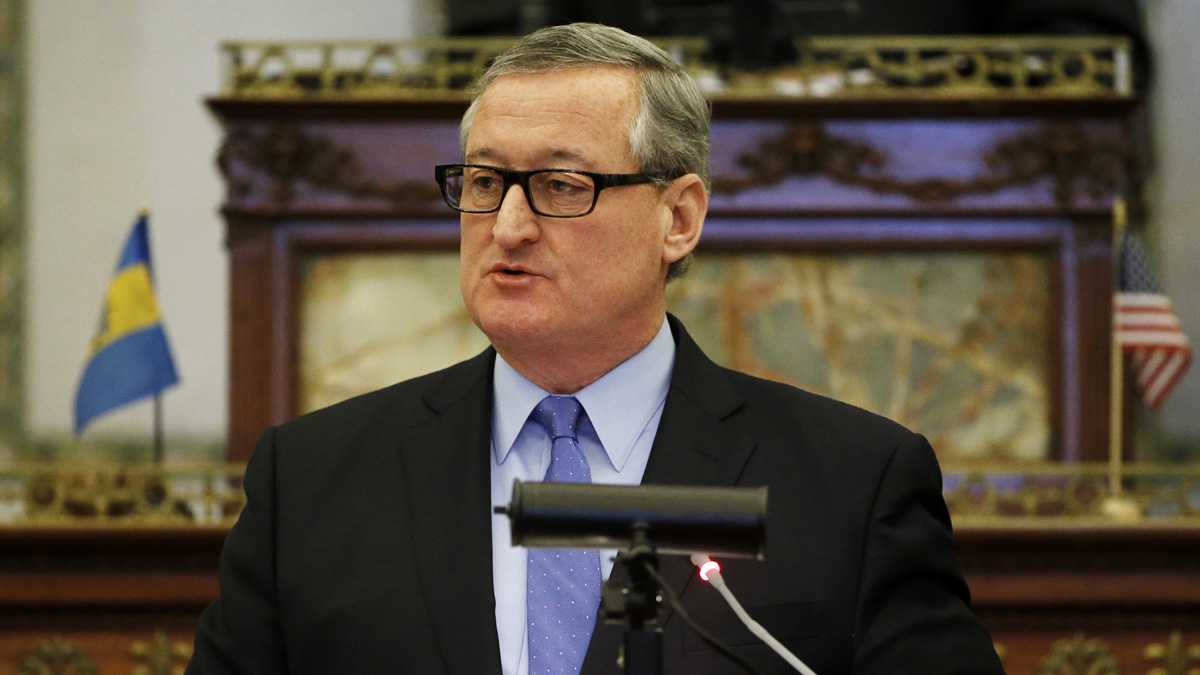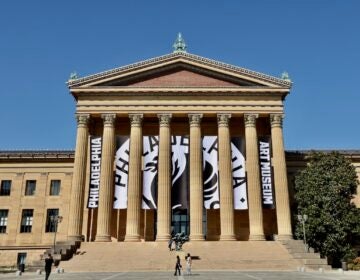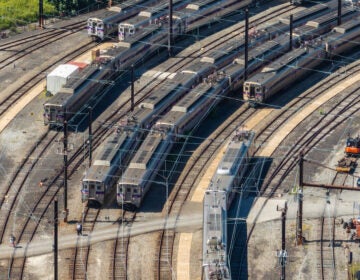Kenney corrects planned tax on fountain beverages, making 3 cents per ounce standard

(AP Photo/Matt Rourke)
Philadelphia Mayor Jim Kenney’s administration says it will tax all sugary drinks at the same rate of 3 cents per ounce if it succeeds in getting the proposal made law.
On Friday, the Philadelphia Inquirer reported the proposed legislation introduced earlier this month would actually tax fountain drinks at a 50 percent higher rate than the same beverages sold in bottles or cans.
Here’s how that works out:
The bill says the tax would be assessed at 3 cents per ounce of sugar-sweetened drinks, including teas, fruit punch and soda, “except for beverage supplied in the form of syrup.” Fountain drinks commonly served at certain restaurants, convenience stores, sports and music venues contain syrup mixed with water. Those drinks, according to the bill, would be taxed at 27 cents per ounce.
Kevin Dietly, a consultant for the American Beverage Association, said 1 ounce of syrup makes 6 ounces of soda in a typical machine, which would result in a 4.5-cent-per-ounce tax on fountain drinks.
During a briefing with reporters Monday morning, city Finance Director Rob DuBow admitted that was a mistake, a holdover from bills introduced when Michael Nutter was mayor, and said the city plans to tax all sugary drinks at the same rate of 3 cents per ounce.
“I think, really, it was something we just didn’t pick up as we worked off the legislation that we had and now we’ll work to correct it,” said DuBow, who was also Nutter’s finance director.
However, that news was no balm to those fighting the tax, including the Pennsylvania Restaurant and Lodging Association.
“We certainly appreciate the fact that they acknowledged it’s a mistake and they’re working to rectify it, but it speaks to the fact they moved to fast on this,” said Melissa Bova, the association’s director of government affairs. “They took Mayor Nutter’s bill, copied and pasted it and added another cent to it … There’s still a tax that basically targets a raw material for our industry.”
The Kenney administration has said the sugary drinks tax would generate $432 million per year, the mayor has pinned several major policy proposals on that revenue source, including a plan for community schools, citywide pre-K and a plan to rehab parks, recreation centers and libraries across the city.
However, soda consumption has been declining across the country over 20 years. As NewsWorks reported last week, the Kenney administration expects sugary drinks sales in Philadelphia to drop by 55 percent during the first year and by 1 percent every subsequent year — that is, if the entire tax is passed along from distributors to retailers to consumers.
“It could be folks switching to a different type of beverage,” said Deputy Revenue Commissioner Marisa Waxman. “It could be folks abstaining. It could be folks buying elsewhere.”
The city also assumes the price of sugary drinks will equal the drop in sales at 55 percent.
However, the soda industry conducted its own analysis and found that consumption would decline by 79 percent and put revenue totals at $279 million over five years. Dietly, who has worked for the food and beverage industry since the mid-1980s, said the administration is low-balling the effect an increase in price could have on sugary beverage sales within the city limits.
“They’re assuming that consumers will reduce their consumption proportional to the amount of the price increase,” he said. “We believe it will be much greater than that because consumers have a lot of opportunities to avoid paying the tax,” such as crossing the border to the Philadlephia suburbs, New Jersey or Delaware.
Bodega owners and other small retailers could also go outside the city to Jetro, Costco or other wholesalers to source these products, Dietly said.
The soda industry’s analysis also calculated a $5 million loss in sales tax revenue (for instance, if more people switched to buying bottled water, which is not subject to the city’s sales tax).
DuBow said any decline in sales tax revenue as a result would be minimal. Later on Monday, Kenney administration spokesman Mike Dunn said loss of sales tax revenue could be “as high as $4.4 million” assuming every person does not buy an alternative drink that is subject to the sales tax.
On Monday, the city’s finance department broke down the projected revenue over the next five fiscal years.
Note, the tax would go into effect on Jan. 1, 2017, in the middle of the fiscal year, so the project revenue shows collections for the first six months.
$47.9 million – FY 2017
$96 million – FY 2018
$96.2 million – FY 2019
$96.2 million – FY 2020
$95.3 million – FY 2021
The city is factoring in a 10 percent “noncompliance rate,” meaning revenue that won’t be collected in the first year. Over time, it could drop to at least 7 percent, Waxman said.
“Voluntary enforcement is the best type of enforcement with a tax … but we know there may be a little lag time before everybody gets the message,” she said.
The city’s revenue department is planning to spend $1.8 million in the first year to make sure beverage distributors are complying with the tax.
WHYY is your source for fact-based, in-depth journalism and information. As a nonprofit organization, we rely on financial support from readers like you. Please give today.




